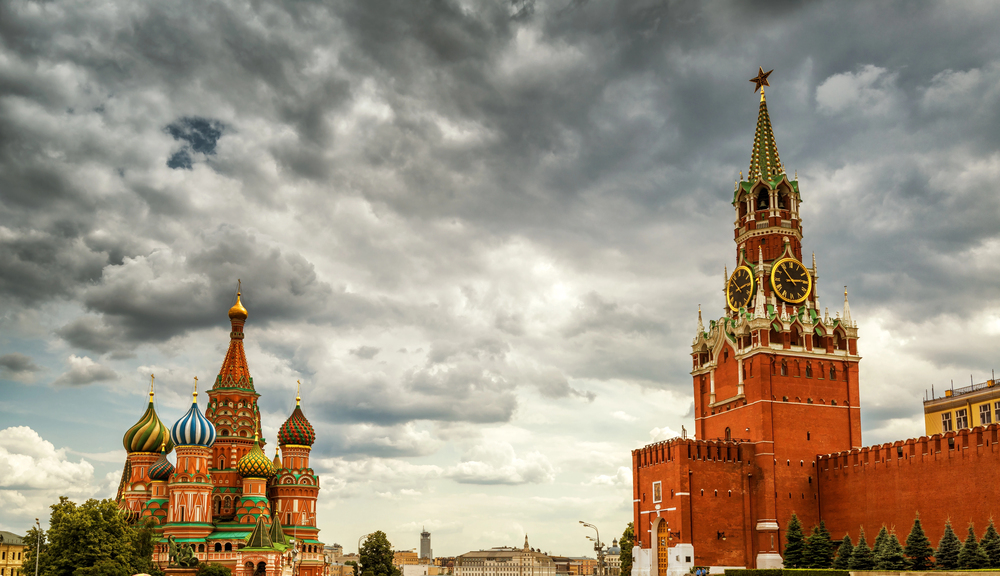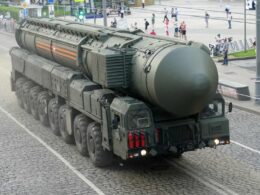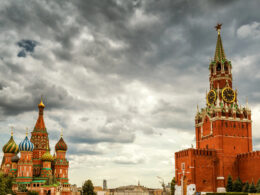Lower oil prices, budget constraints and a rise in bad corporate debt are among the top economic risks facing Russia, documents prepared for an internal government discussion show, with a possible jump in US and OPEC oil output of notable concern.
President Vladimir Putin and top officials have in public regularly extolled the Russian economy's resilience in the face of international sanctions while characterizing inflation, stubbornly high at 10%, as its biggest challenge.
But the reports reviewed by Reuters, which were prepared by the economy ministry and central bank for a 4 February session with Russian Prime Minister Mikhail Mishustin, reveal broader concerns existed before Wednesday's 12 February announcement by US President Donald Trump of talks with Putin to end the Russo-Ukrainian War.
"A situation in which the slowdown of the economy up to a technical recession will occur much faster than the slowdown in inflation is becoming much more likely," the economy ministry report said.
Problems for Russian federal budget
That report warned that high interest rates - which analysts polled by Reuters expect to stay at 21% when the central bank meets on Friday 14 February - are curbing lending and investment, threatening Russia's growth prospects. "The lack of investment now is a lack of GDP growth (lower growth rates) in two to three years," the report said.
Both the economy ministry and central bank flagged the danger of lower oil prices, which could cause problems for the federal budget. The central bank's report highlighted the "significant risk" of lower oil prices should a US production drive flood the market and further noted that OPEC countries' free capacity is close to a record high and equal to the volume of Russian crude exports.
"Budget constraints in the following 5-10 years may be tougher than it currently seems," the Russian central bank said in its assessment of the potential impact of lower oil prices.
The economy ministry said in its report that it was braced for widespread cost increases for companies, a concern publicly raised by Deputy Prime Minister Alexander Novak in parliament on Wednesday 12 February.
With unfavorable external conditions and declining domestic demand making it harder for firms to pass on costs to consumers, that will further squeeze profits, it noted.
That all weighs on companies' financial stability and adds to the risk of bad debts building up, the report went on. It warned that growth in supply could be insufficient even to meet slowing demand - especially in the agriculture sector, where price rises are likely in 2025.
Putin increasingly concerned about Russia's economy
Fueled by soaring government spending, military production and exports of oil, gas and minerals, Russia's economy grew strongly after a small contraction in 2022, withstanding the impact of Western sanctions over the full-scale invasion of Ukraine better than Moscow or the West initially expected.
But in recent months widespread labor shortages, rouble weakness and interest rates at their highest in more than two decades have strained Russia's growth prospects.
In January, Reuters reported Putin had privately grown increasingly concerned about distortions in Russia's wartime economy, citing five sources with knowledge of the situation.
Washington is acutely aware of oil prices as a pressure point for Moscow, with US Defense Secretary Pete Hegseth on Wednesday 12 February predicting lower energy prices would help bring Russia to the table for negotiations over the future of Ukraine, the publication states.
Energy income accounts for about a third of Russia's budget revenues and higher oil prices help Moscow manage its fiscal deficit, which ballooned to 1.7 trillion roubles in January alone, as Moscow frontloads 2025 spending.
($1 = 90.3000 roubles).
Related:
- Bloomberg: Putin’s strength in Ukraine may be an illusion as Russia’s corporate debt hits $ 446 billion
- Ukraine arrests $50 million worth of Russian oligarch Deripaska’s assets
- ISW: Russian economy shows distress signs despite Kremlin’s strong-year-for-economy claims
- Welt: Russia arming beyond its needs in Ukraine, threatening NATO
- Russia’s secret $ 250B war fund threatens economic collapse, ex-Bank of America vice chairman says





